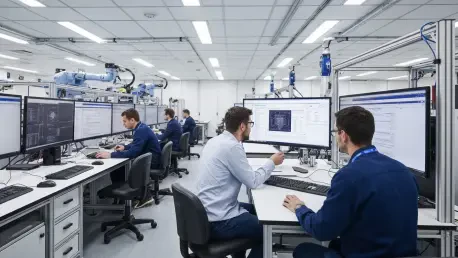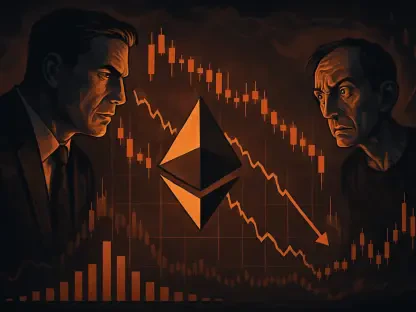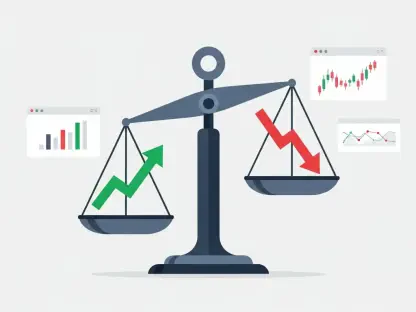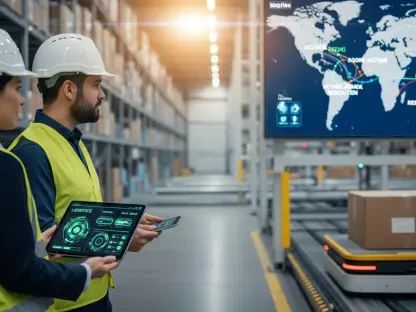As the digital landscape continues to evolve at a breakneck pace, Europe stands at a critical juncture where industrial AI and data-driven innovation are becoming the backbone of economic competitiveness, shaping the future across various sectors. From manufacturing to agriculture and energy, the integration of cutting-edge technologies is no longer a luxury but a necessity for resilience and sustainability. This year, a pivotal gathering in Copenhagen, Denmark, from November 12 to 14, brings together the brightest minds in the European Big Data Value and Industrial AI Research and Innovation community. The event serves as a platform to explore how AI can transform industries while adhering to ethical and human-centered principles. At the heart of this transformation are initiatives managed by the European Health and Digital Executive Agency (HaDEA), which are driving groundbreaking projects under Horizon Europe. These efforts are not only pushing technological boundaries but also shaping a future where digital and industrial progress align with societal values.
Pioneering Industrial AI Through Horizon Europe
Advancing Industry 5.0 with AI REDGIO 5.0
A major focus of HaDEA’s contributions is the push toward Industry 5.0, a paradigm that emphasizes human-centered, sustainable, and resilient industrial practices. One standout initiative, AI REDGIO 5.0, exemplifies this vision by spearheading efforts to integrate AI and edge computing into manufacturing, particularly for small and medium-sized enterprises (SMEs). This project builds on previous European endeavors to foster collaboration between regions and Digital Innovation Hubs (DIHs). By prioritizing technologies along the edge-to-cloud continuum, it ensures that SMEs gain access to advanced tools that enhance productivity without compromising ethical standards. AI REDGIO 5.0 also aligns with EU Testing and Experimentation Facilities (TEFs) and Data Spaces programs, creating a unified framework for data sharing that upholds digital sovereignty. This initiative reflects a broader commitment to empowering businesses with innovative solutions tailored to modern industrial challenges, ensuring they remain competitive in a rapidly changing global market.
The impact of AI REDGIO 5.0 extends beyond mere technology adoption, as it actively shapes a collaborative ecosystem across Europe. By connecting regional hubs with cutting-edge research, the project facilitates the exchange of knowledge and resources, enabling SMEs to experiment with AI-driven solutions in real-world settings. This hands-on approach not only accelerates digital transformation but also ensures that the technologies developed are practical and scalable. Furthermore, the emphasis on ethical AI underscores a dedication to maintaining trust and transparency in industrial applications. As manufacturing processes become increasingly data-driven, initiatives like this one play a crucial role in balancing innovation with responsibility. The result is a robust framework that supports long-term growth while addressing the unique needs of smaller enterprises, positioning Europe as a leader in sustainable industrial practices.
Aligning with EU’s Digital and Green Transitions
HaDEA-managed projects consistently demonstrate alignment with the EU’s twin goals of digital and green transitions, particularly through Horizon Europe’s Cluster 4 – Digital program. This strategic focus ensures that industrial AI advancements contribute to broader environmental and societal objectives, such as reducing carbon footprints and enhancing energy efficiency. The initiatives showcased at the Copenhagen event highlight a unified vision of ethical and competitive industrial practices, where technology serves as a tool for positive change. By prioritizing trustworthy AI, these projects address public concerns about data privacy and algorithmic bias, fostering confidence in digital systems. This alignment is evident in the way research and industry stakeholders collaborate to develop solutions that are both innovative and sustainable, reinforcing Europe’s role as a global frontrunner in responsible technological progress.
Moreover, the integration of generative AI across various sectors illustrates the versatility of HaDEA’s approach to industrial transformation. From optimizing agricultural yields to streamlining energy distribution, the application of advanced algorithms is creating efficiencies that were previously unimaginable. These efforts are complemented by a commitment to human-centric design, ensuring that workers and communities benefit from technological advancements rather than being displaced by them. The synergy between public policy and private innovation, as facilitated by HaDEA, creates a fertile ground for scalable solutions that address pressing global challenges. This holistic strategy not only enhances digital competitiveness but also sets a benchmark for how technology can be harnessed to achieve sustainable growth, providing a model for other regions to emulate.
Building Resilient Manufacturing Ecosystems
Strengthening Supply Chains with MAASive and NARRATE
Resilience in manufacturing has emerged as a critical priority, and HaDEA is addressing this through innovative platforms like MAASive and NARRATE. MAASive focuses on enhancing value network resilience by enabling manufacturers to adapt swiftly to supply and demand disruptions. Through sophisticated simulation models, it assesses potential challenges and informs strategic decision-making, allowing for efficient resource reconfiguration during crises. This Manufacturing-as-a-Service approach redefines traditional production models, offering flexibility that is vital in an era of global uncertainties. By treating manufacturing as a dynamic service rather than a static process, MAASive ensures that industries can maintain operational continuity even under adverse conditions, safeguarding economic stability across supply chains.
In parallel, NARRATE introduces an AI-powered tool that leverages Digital Twin and Internet of Things (IoT) technologies to provide real-time visibility into supply chains. This platform delivers predictive insights that help anticipate disruptions before they occur, enabling proactive responses. Its Intelligent Manufacturing Custodian (IMC) further enhances collaboration by facilitating data-driven decision-making, with a strong emphasis on sustainability and energy efficiency. Unlike MAASive’s focus on resource adaptability, NARRATE prioritizes actionable intelligence, ensuring that stakeholders have the information needed to optimize operations. Together, these initiatives create a comprehensive framework for resilience, addressing both immediate operational needs and long-term environmental goals, thus reinforcing the robustness of European manufacturing ecosystems.
Fostering Trusted Networks with M4ESTRO
Another cornerstone of HaDEA’s efforts to bolster manufacturing resilience is M4ESTRO, which develops a Smart and Trusted Network through a Manufacturing-as-a-Service platform. This initiative enables rapid adjustments to value chains during crises, ensuring that industries can pivot effectively in response to unexpected challenges. By fostering trusted data sharing among manufacturing professionals, M4ESTRO builds a collaborative environment where transparency and security are paramount. This focus on trust is essential in an era where data breaches and cyber threats pose significant risks to industrial operations. The platform’s ability to streamline communication and resource allocation during disruptions highlights its role as a critical tool for maintaining competitiveness in a volatile global market.
Beyond immediate crisis response, M4ESTRO contributes to the long-term stability of manufacturing networks by embedding ethical data practices into its framework. The emphasis on secure and reliable data exchange ensures that all stakeholders can participate with confidence, fostering stronger partnerships across the industry. This initiative also aligns with broader EU objectives of creating interconnected and resilient industrial systems that can withstand economic and environmental pressures. By integrating advanced technologies with a commitment to trust, M4ESTRO sets a standard for how collaborative platforms can drive innovation while mitigating risks. The combined impact of these HaDEA-managed projects underscores a forward-thinking approach to building manufacturing ecosystems that are adaptable, sustainable, and prepared for future challenges.
Reflecting on a Transformative Vision
Looking back at the discussions and showcases in Copenhagen from November 12 to 14, it became evident that HaDEA-managed projects played a pivotal role in advancing Europe’s industrial and digital landscape. The integration of AI, edge computing, and data spaces through initiatives like AI REDGIO 5.0, MAASive, NARRATE, and M4ESTRO demonstrated a remarkable synergy of innovation and responsibility. These efforts not only addressed immediate industrial challenges but also laid a strong foundation for sustainable growth. Moving forward, stakeholders should prioritize scaling these solutions across diverse sectors, ensuring that the benefits of Industry 5.0 reach even the smallest enterprises. Collaborative platforms must continue to evolve, incorporating feedback from real-world applications to refine their impact. Additionally, policymakers and industry leaders should focus on strengthening public-private partnerships to sustain this momentum, ensuring that Europe remains at the forefront of ethical and competitive industrial transformation.









